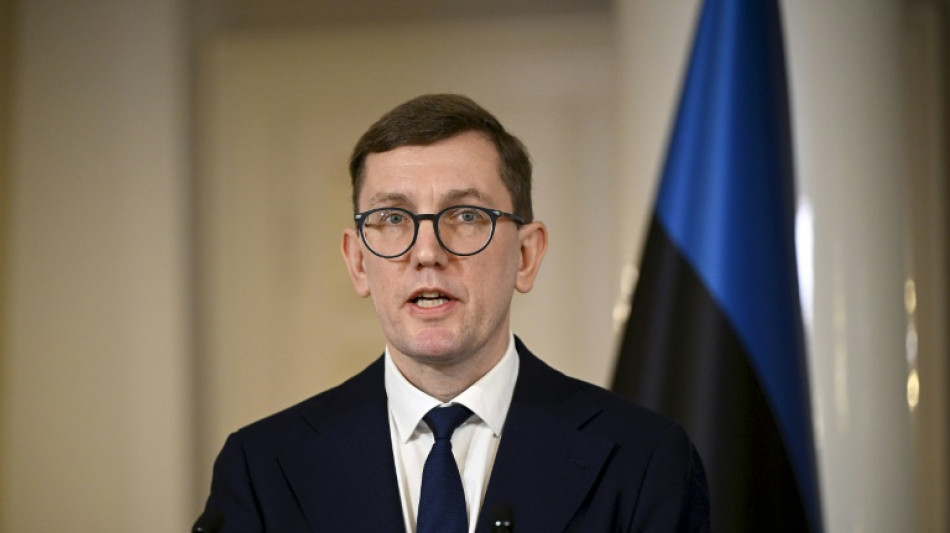
-
 Border casinos caught in Thailand-Cambodia crossfire
Border casinos caught in Thailand-Cambodia crossfire
-
Australia's Head slams unbeaten 142 to crush England's Ashes hopes

-
 Epstein files due as US confronts long-delayed reckoning
Epstein files due as US confronts long-delayed reckoning
-
'Not our enemy': Rush to rearm sparks backlash in east Germany
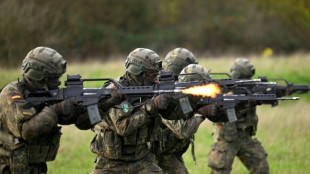
-
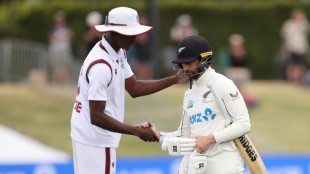 West Indies 110-0, trail by 465, after Conway's epic 227 for New Zealand
West Indies 110-0, trail by 465, after Conway's epic 227 for New Zealand
-
Arsonists target Bangladesh newspapers after student leader's death
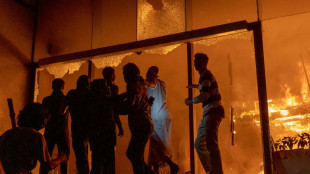
-
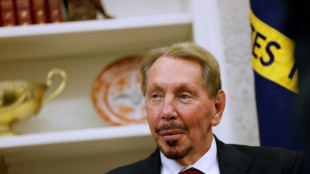 Volatile Oracle shares a proxy for Wall Street's AI jitters
Volatile Oracle shares a proxy for Wall Street's AI jitters
-
Tears at tribute to firefighter killed in Hong Kong blaze

-
 Seahawks edge Rams in overtime thriller to seize NFC lead
Seahawks edge Rams in overtime thriller to seize NFC lead
-
Teenager Flagg leads Mavericks to upset of Pistons

-
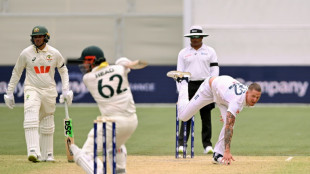 Australia's Head fires quickfire 68 as England's Ashes hopes fade
Australia's Head fires quickfire 68 as England's Ashes hopes fade
-
Conway falls for 227 as New Zealand declare at 575-8 in West Indies Test
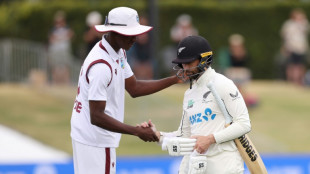
-
 Japan hikes interest rates to 30-year-high
Japan hikes interest rates to 30-year-high
-
Brazil's top court strikes down law blocking Indigenous land claims
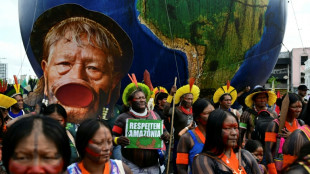
-
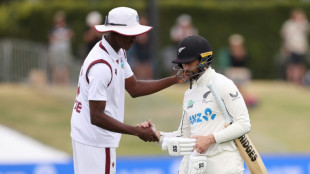 Conway falls for 227 as New Zealand pass 500 in West Indies Test
Conway falls for 227 as New Zealand pass 500 in West Indies Test
-
'We are ghosts': Britain's migrant night workers
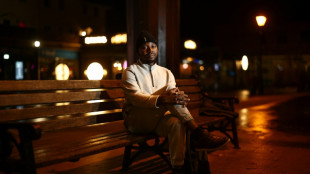
-
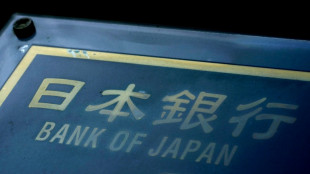 Asian markets rise as US inflation eases, Micron soothes tech fears
Asian markets rise as US inflation eases, Micron soothes tech fears
-
Giant lanterns light up Christmas in Catholic Philippines
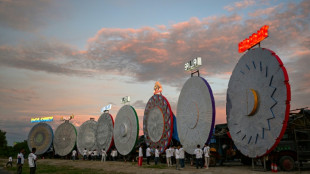
-
 TikTok: key things to know
TikTok: key things to know
-
Putin, emboldened by Ukraine gains, to hold annual presser
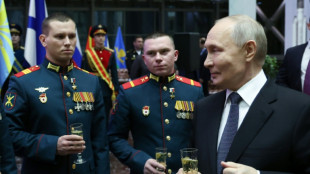
-
 Deportation fears spur US migrants to entrust guardianship of their children
Deportation fears spur US migrants to entrust guardianship of their children
-
Upstart gangsters shake Japan's yakuza

-
 Trump signs $900 bn defense policy bill into law
Trump signs $900 bn defense policy bill into law
-
Stokes's 83 gives England hope as Australia lead by 102 in 3rd Test

-
 Go long: the rise and rise of the NFL field goal
Go long: the rise and rise of the NFL field goal
-
Australia announces gun buyback, day of 'reflection' after Bondi shooting
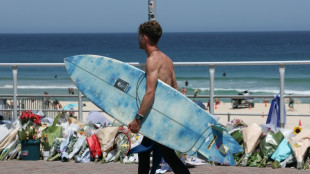
-
 New Zealand Cricket chief quits after split over new T20 league
New Zealand Cricket chief quits after split over new T20 league
-
England all out for 286, trail Australia by 85 in 3rd Test

-
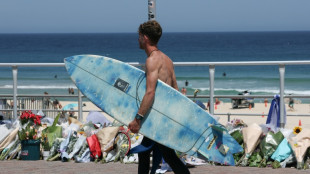 Australian announces gun buyback, day of 'reflection' after Bondi shooting
Australian announces gun buyback, day of 'reflection' after Bondi shooting
-
Joshua takes huge weight advantage into Paul fight

-
 TikTok signs joint venture deal to end US ban threat
TikTok signs joint venture deal to end US ban threat
-
Conway's glorious 200 powers New Zealand to 424-3 against West Indies

-
 WNBA lockout looms closer after player vote authorizes strike
WNBA lockout looms closer after player vote authorizes strike
-
Honduras begins partial vote recount in Trump-dominated election
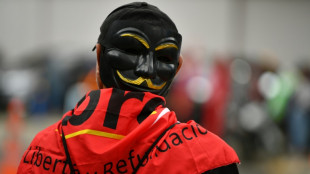
-
 Nike shares slump as China struggles continue
Nike shares slump as China struggles continue
-
Hundreds swim, float at Bondi Beach to honour shooting victims
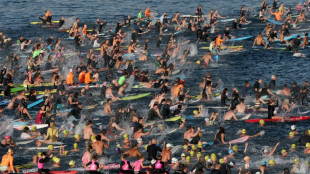
-
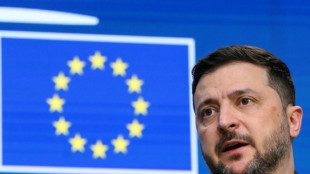 Crunch time for EU leaders on tapping Russian assets for Ukraine
Crunch time for EU leaders on tapping Russian assets for Ukraine
-
Pope replaces New York's pro-Trump Cardinal with pro-migrant Chicagoan

-
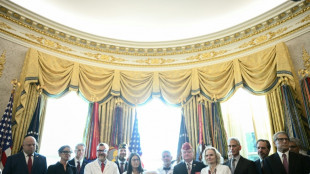 Trump orders marijuana reclassified as less dangerous drug
Trump orders marijuana reclassified as less dangerous drug
-
Rams ace Nacua apologizes over 'antisemitic' gesture furor

-
 McIlroy wins BBC sports personality award for 2025 heroics
McIlroy wins BBC sports personality award for 2025 heroics
-
Napoli beat Milan in Italian Super Cup semi-final

-
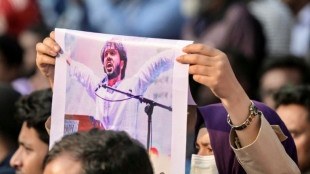 Violence erupts in Bangladesh after wounded youth leader dies
Violence erupts in Bangladesh after wounded youth leader dies
-
EU-Mercosur deal delayed as farmers stage Brussels show of force
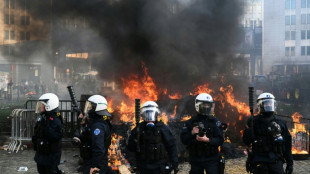
-
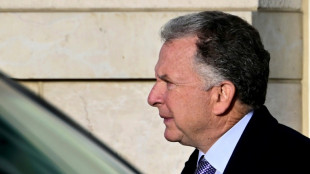 US hosting new Gaza talks to push next phase of deal
US hosting new Gaza talks to push next phase of deal
-
Chicago Bears mulling Indiana home over public funding standoff

-
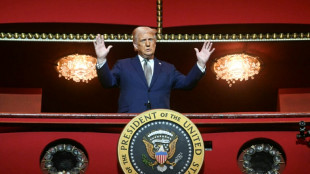 Trump renames Kennedy arts center after himself
Trump renames Kennedy arts center after himself
-
Trump rebrands housing supplement as $1,776 bonuses for US troops
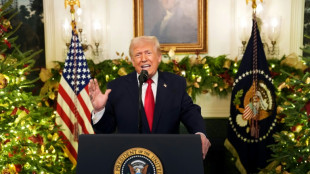
-
 Harrison Ford to get lifetime acting award
Harrison Ford to get lifetime acting award
-
Trump health chief seeks to bar trans youth from gender-affirming care
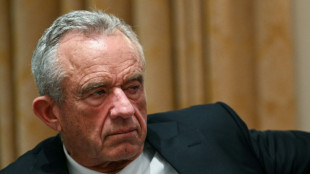

Estonian MPs pass bill to limit voting rights for Russian minority
Estonian lawmakers voted Wednesday to ban the country's large Russian minority and other non-EU residents from voting in local elections, as the Baltic state warily eyes Moscow.
The amendment was proposed in response to security concerns over Russia's war in Ukraine. Estonia has been a steadfast supporter of Kyiv since the invasion in February 2022.
In the vote on Wednesday, 93 lawmakers in the 101-seat chamber backed a constitutional amendment to impose the restrictions, a result that was met with applause from MPs.
Estonian Prime Minister Kristen Michal hailed the outcome as "a victory for all", adding on X: "The decisions in our local life won't be made by the citizens of the aggressor states, but we'll decide by ourselves."
Nearly 80,000 Russian citizens hold a residence permit in the former Soviet republic of 1.3 million people, which regained its independence in 1991.
There are also nearly 60,000 people left stateless after the fall of the Soviet Union.
The restrictions, if signed into law by Estonia's president, would ban non-EU citizens from voting and allow the stateless residents to go to polls one last time in local elections in October.
"If Russia had been, from our point of view, sensible, no one would have initiated this," said Rein Toomla, a political expert from the Johan Skytte Institute.
"It's very clearly against Russia and... Russian citizens living in Estonia have fallen victim to this because Russia has acted this way, not them," he told AFP.
Permanent residents of Estonia currently have a constitutional right to vote in local elections, but not general elections.
- 'Imperialistic ambitions' -
Relations between Moscow and the Baltic states of Estonia, Latvia and Lithuania have soured over the years.
Both Estonia and Latvia have sizeable Russian-speaking minorities that are sometimes at odds with the national governments.
There have been concerns that Moscow could seek to exploit these differences to destabilise the countries, which are both EU and NATO members.
Citing the threat from Russia, Estonia plans to raise defence spending next year to at least five percent of GDP.
"Russia has not changed its goals and imperialistic ambitions. This is a real threat to both Europe and NATO," Michal said last week.
He had already told public broadcaster ERR in January that "If a person wants to be a citizen of Russia... they shouldn't expect to be part of the discussion about Estonia".
Voting rights are just the latest symbolic act of cutting ties with Russia.
The Baltic states began removing and demolishing some of their Soviet-era war memorials in response to Russia's Ukraine invasion.
This prompted outrage in Moscow, which declared former Estonian leader Kaja Kallas -- now the EU foreign policy chief -- and several other European officials as "wanted" over their alleged involvement in the destruction of the memorials.
- Security threat -
Estonia's 101 lawmakers examined two slightly different versions of the voting amendment.
One was to ban third-country nationals -- who are neither citizens of the European Union nor the visa-free Schengen travel zone -- and stateless individuals from voting in local elections, including the ones in October.
The other proposal was to allow stateless individuals to vote one last time in the coming election, but third-country nationals would be banned.
The prime minister backed the less restrictive version, as did a larger number of MPs.
Supporters say it would give stateless individuals enough time to apply for Estonian citizenship.
When Estonia gained independence from the Soviet Union, around a third of the people living on its territory were from Russian-speaking minorities whose families had immigrated from other Soviet republics.
They did not qualify for citizenship because of a lack of blood ties to Estonia. Citizenship also requires applicants to pass an Estonian language test.
S.Keller--BTB
